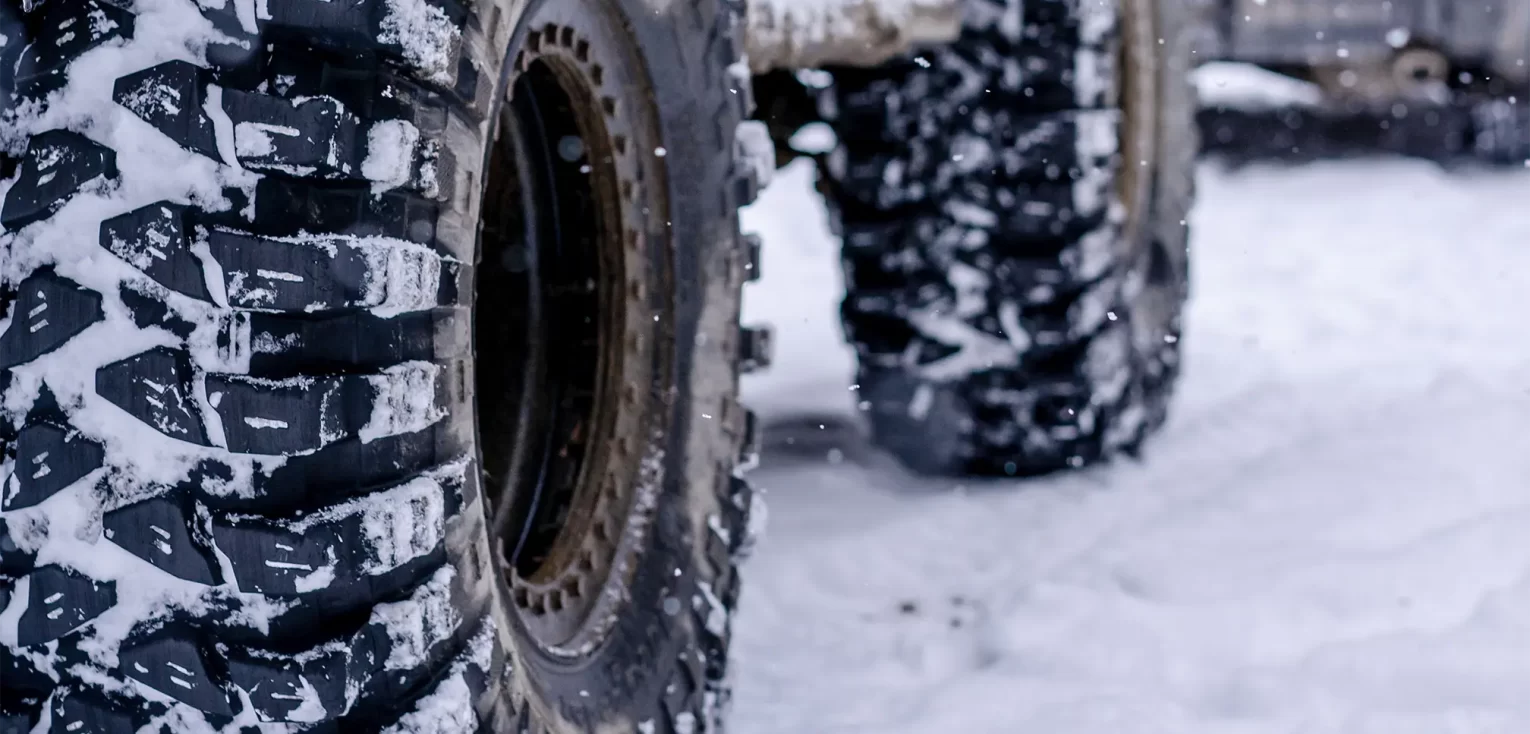Driving in the winter can take a toll on your tires. Below we cover the benefits of switching to winter tires and provide some winter maintenance tips for all-season tires.
Winter Tires
Most vehicles are outfitted with all-season tires. While these can work in the winter, you should also consider using winter tires. Winter tires, sometimes called snow tires, are designed specifically for use in freezing temperatures. Rubber typically hardens as it freezes so winter tires are made of a special rubber compound that maintains its flexibility in the cold. This allows them to better grip the road. In addition to a more flexible rubber, winter tires are also made with deeper treads and siping (small slits in the tread). Both of these help with traction and tire grip in snow, ice, and slush.
When should you change to winter tires?
If you decide to purchase winter tires, you should change them out when the weather stays consistently cold. When the temperature is 40° Fahrenheit or lower in the mornings and at night, it’s cold enough to put on your winter tires. If you plan on traveling to snowier areas for winter recreation (skiing, snowboarding, tubing), it’s also a good time to put on your winter tires.
Do you need winter tires with All Wheel Drive?
A lot of vehicles come equipped with All Wheel Drive (AWD) or are 4×4 vehicles. While these features can help you start and maintain speed in the snow or ice, they won’t provide extra stopping or turning power. Braking and cornering both rely on your tires. Using winter tires (or even snow chains) in addition to your AWD can make a huge difference in your vehicle’s winter performance.
Can you drive on winter tires all year?
Changing tires can be a hassle and it might be tempting to keep your winter tires on all year. It’s not recommended, though, as winter tires are specifically designed for use in the winter. The flexible rubber compound that helps with traction in cold temperatures will wear out much faster in warm weather. The deep tread that grips the road may lower your gas mileage when that extra grip strength isn’t necessary. Swapping out your winter tires will save you money in the long run, and it’ll aid the performance of your vehicle.
All-Season Tire Maintenance in Winter
If you decide not to use winter tires, there are still some important maintenance tips you can follow to help your all-season tires drive safer in the cold.
Tip #1: Maintain Tire Pressure
Some people believe that underinflated tires will grip frozen roads better than properly inflated tires. While this idea might sound good in theory, it’s actually not true. Your tires will fare much better if they are properly inflated—underinflation leaves them vulnerable to damage. You may need to check your tire pressure more regularly in the winter. Every 10° drop in temperature equals a change of 1 to 2 pounds of pressure in your tire (PSI). You should keep your tires inflated to the recommended PSI listed on either the driver’s side doorjamb or in your vehicle’s owner’s manual.
Tip #2: Check Tread Depth
Tread depth on all-season tires is important all year long, but it’s even more so in the winter. Your tread should be at least 2/32s of an inch or greater all the way around each tire. This is a pretty small measurement, so one way you can check your tread depth is by using a penny. Place Lincoln’s head in the tread of your tire. If you can see the top of his head, it’s time to replace your tires.
Tip #3: Repair or Replace Damaged Tires
Tires can withstand a lot, but they do wear out over time. If your tire has any cracks or punctures, have them patched or replaced. If you have any bubbles or bulges, you need to replace them so they don’t pop. Keeping your tires in good condition can help you drive safely on the road.
Tip #4: Drive More Carefully
With proper maintenance, your tires should drive just fine if you don’t overdo it on the road. Avoid sudden movements, accelerate gently, and turn gradually. It’s also a good idea to avoid last-second stops by easing on the brakes when you know a stop is coming. If your tires start to spin on wintery roads, they’re likely out of control. You can avoid spinning by driving more cautiously.
Call Restored Auto LLC for your Winter Tire Needs.
Whether you’re changing to winter tires or maintaining all-season ones, Restored Auto LLC can help. Call today to schedule your tire maintenance or repair.

